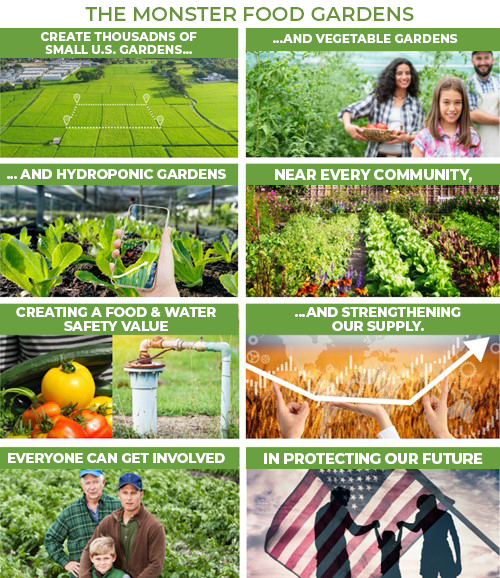Risks Of The Us Food Supply

Because the United States has a very high risk of having an extremely
Our country is facing what may become an agricultural crisis. Between 1993 and 2020, U.S. agricultural imports from Mexico have increased elevenfold. In 2020, the United States had a $15 billion agricultural trade deficit with Mexico.
Nearly all of our small farms have gone out of business. The few that remain are only viable now because they are vertically integrated. They can afford to lose money in farming if they can make it up in other related businesses.
Today, the United States imports over half of its fresh fruit and almost a third of its fresh vegetables come from other countries. We think this has become a national security concern.
Adding to the concern of where most of our food is produced, we also are experiencing a precarious supply chain problem. The possibility of supply chain disruptions such as road blockages, lack of fuel, worker strikes, or terrorism increases our country’s vulnerability to massive food and water shortages.
If the U.S. were to become entangled in a war, our transportation and electrical grids could be among the first to be targeted for destruction by foreign military or terrorists. If these systems were to be damaged, our country would experience a severe supply chain disruption

Preparing for Potential Food Supply Crises

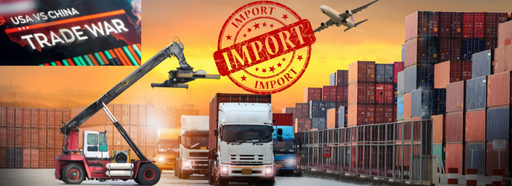
Millennial Food Gardens: A self-sustaining large gardens designed to last a thousand years
Circumstances around us are becoming alarming. This is no conspiracy theory. We can see it right before our eyes. Current circumstances include:
- Surging inflation
- Food shortages
- Supply chain disruptions
- Wars and rumors of wars
- Russia threatening the use of nuclear weapons
- China expansion and aggression
- Iran trying to obtain a nuclear bomb
- North Korea continuing to test missiles that could carry nuclear weapons
- Global pandemics
- Food processing and distribution centers being damaged (set on fire!
- Migrants pouring into our country under a policy of open borders
Food Shortage Ahead?
Because of surging inflation, vulnerable domestic food supplies, and distribution grid problems along with worsening world events, the American Foundation feels an urgent need to build numerous small, family-sponsored community gardens called millennial food gardens.
The United States risks having an extremely vulnerable food supply
In fact, we are facing what may become an agricultural crisis. Between 1993 and 2020, U.S. agricultural imports from Mexico have increased elevenfold. In 2020, the United States had a $15 billion agricultural trade deficit with Mexico.
Nearly all of our small farms have gone out of business. The few that remain are only viable now because they are vertically integrated. They can afford to lose money in farming if they can make it up in other related businesses. Today, the United States imports over half of its fresh fruit and almost a third of its fresh vegetables come from other countries. We think this has become a national security concern.
Adding to the concern of where most of our food is produced, we also are experiencing a precarious supply chain problem. The possibility of supply chain disruptions such as road blockages, lack of fuel, worker strikes, or terrorism increases our country’s vulnerability to massive food and water shortages.
If the U.S. were to become entangled in a war, our transportation and electrical grids could be among the first to be targeted for destruction by foreign military or terrorists. If these systems were to be damaged, our country would experience a severe supply chain disruption. Circumstances around us are becoming alarming. This is no conspiracy theory. We can see it right before our eyes. Current circumstances include:
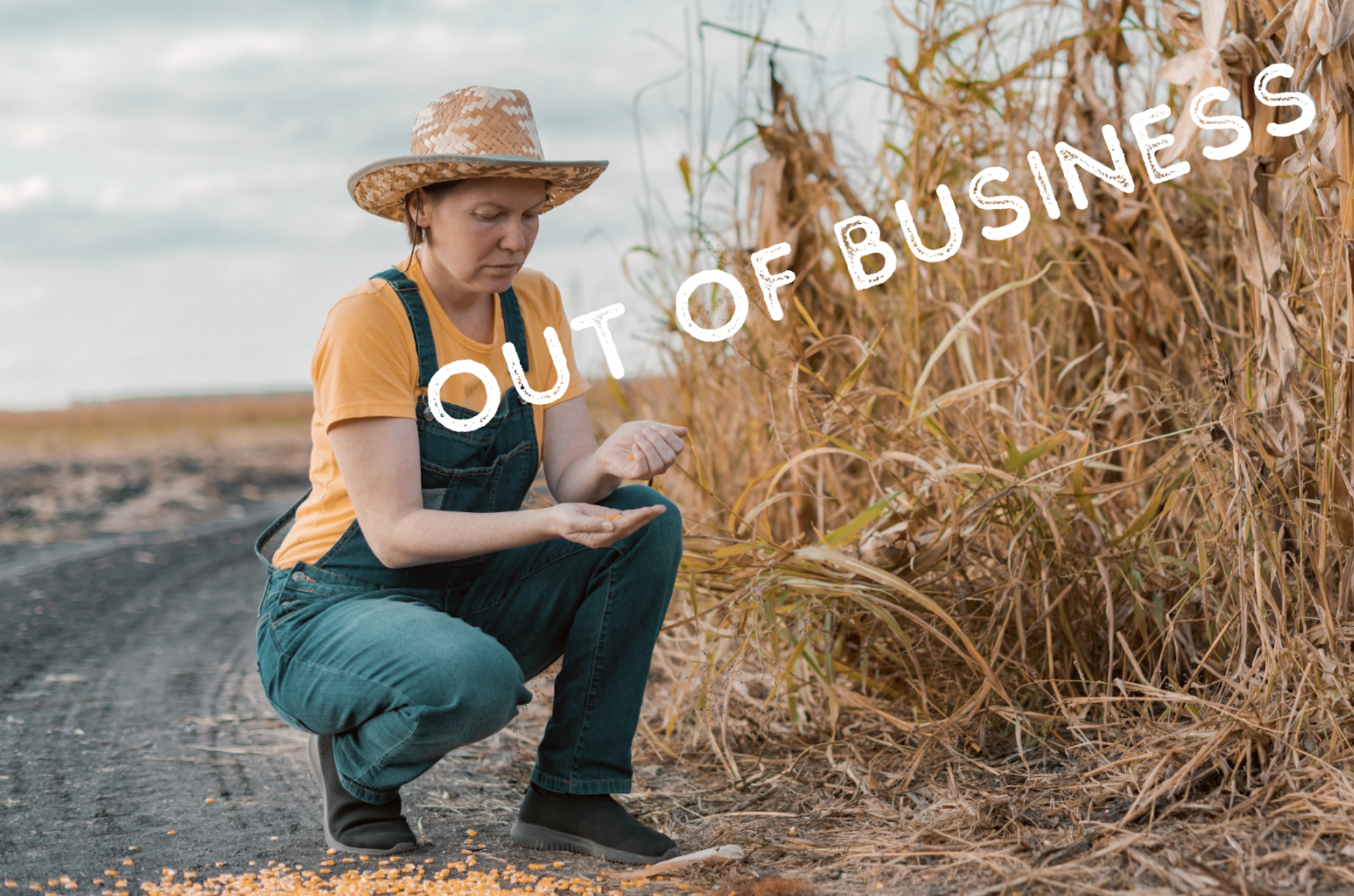
In fact, we are facing what may become an agricultural crisis. Between 1993 and 2020, U.S. agricultural imports from Mexico have increased elevenfold. In 2020, the United States had a $15 billion agricultural trade deficit with Mexico.
Nearly all of our small gardens have gone out of business. The few that remain are only viable now because they are vertically integrated. They can afford to lose money in gardening if they can make it up in other related businesses. Today, the United States imports over half of its fresh fruit and almost a third of its fresh vegetables come from other countries. We think this has become a national security concern.
Adding to the concern of where most of our food is produced, we also are experiencing a precarious supply chain problem. The possibility of supply chain disruptions such as road blockages, lack of fuel, worker strikes, or terrorism increases our country’s vulnerability to massive food and water shortages.
If the U.S. were to become entangled in a war, our transportation and electrical grids could be among the first to be targeted for destruction by foreign military or terrorists. If these systems were to be damaged, our country would experience a severe supply chain disruption. Circumstances around us are becoming alarming. This is no conspiracy theory. We can see it right before our eyes. Current circumstances include:
- Surging inflation
- Food shortages
- Supply chain disruptions
- Wars and rumors of wars
- Russia threatening the use of nuclear weapons
- China expansion and aggression
- Iran trying to obtain a nuclear bomb
- North Korea continuing to test missiles that could carry nuclear weapons
- Global pandemics
- Food processing and distribution centers being damaged (set on fire)
- Migrants pouring into our country under a policy of open borders
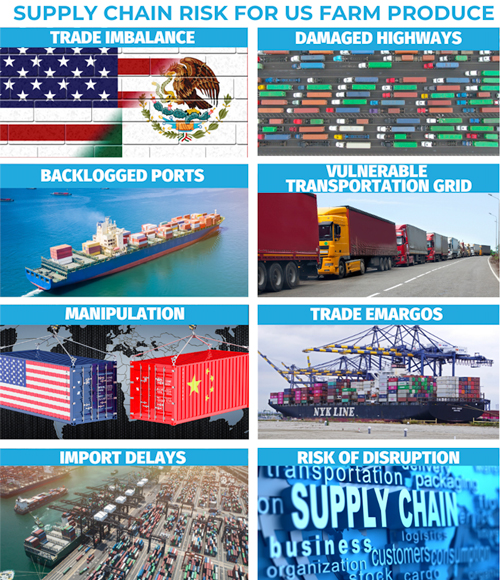
- Surging inflation
- Food shortages
- Supply chain disruptions
- Wars and rumors of wars
- Russia threatening the use of nuclear weapons
- China expansion and aggression
- Iran trying to obtain a nuclear bomb
- North Korea continuing to test missiles that could carry nuclear weapons
- Global pandemics
- Food processing and distribution centers being damaged (set on fire)
- Migrants pouring into our country under a policy of open borders
Millennial Farms has a solution
Because of surging inflation, vulnerable domestic food supplies, and distribution grid problems along with worsening world events, the American Foundation feels an urgent need to build numerous small, family-sponsored community farms called Millennial Farms.
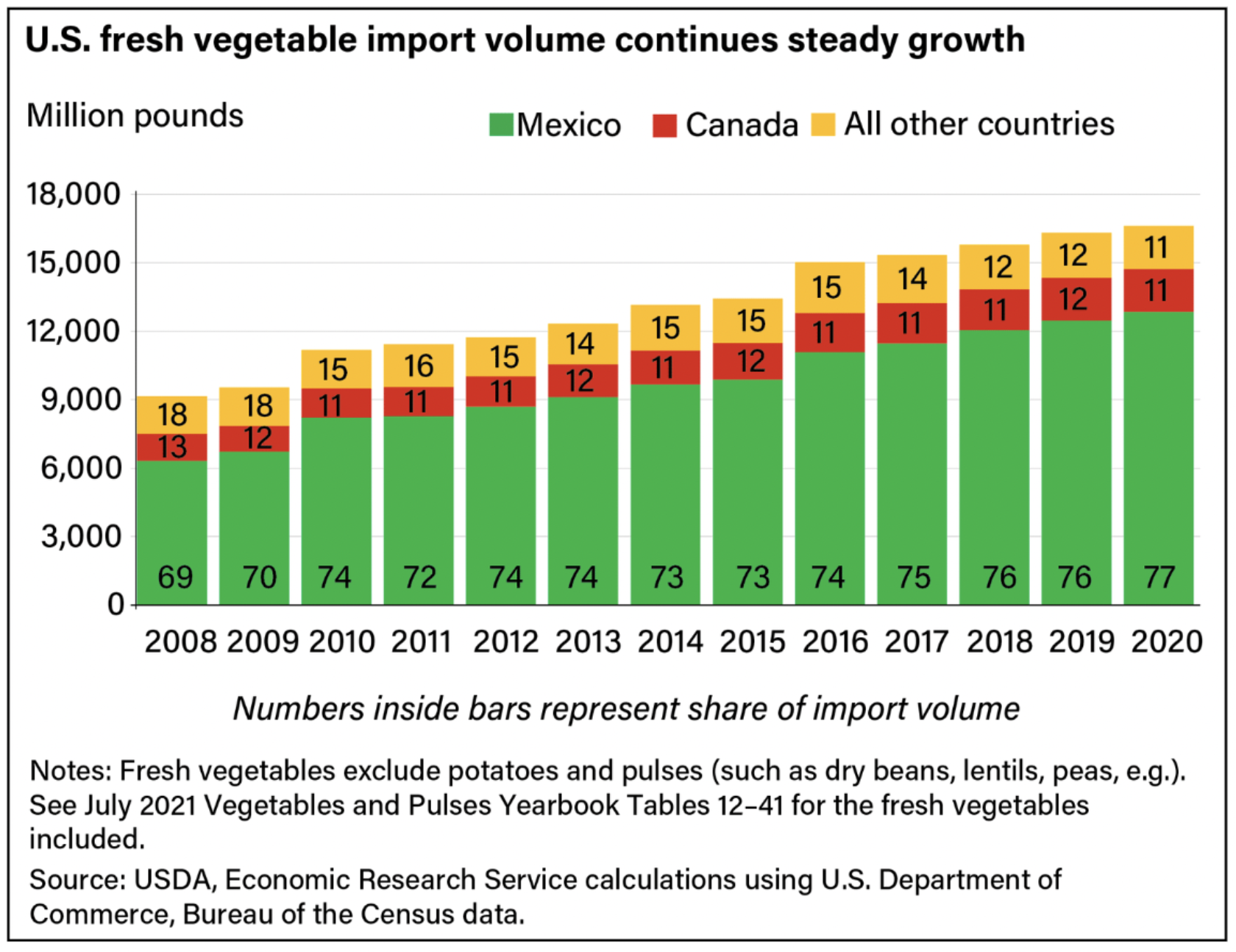
Millennial Food Gardens has a solution
Because of surging inflation, vulnerable domestic food supplies, and distribution grid problems along with worsening world events, the American Foundation feels an urgent need to build numerous large, family-sponsored, Millennial food gardens.
